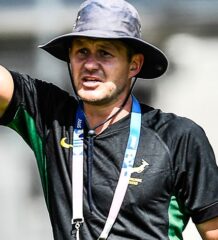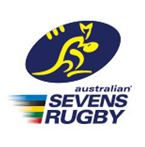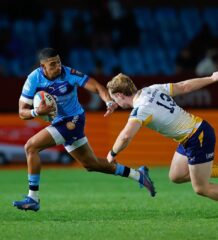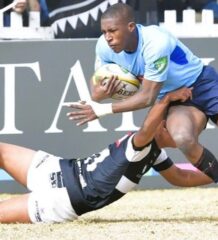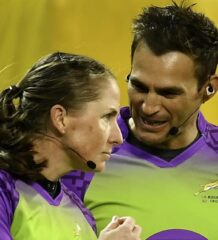Fast Facts of Sevens
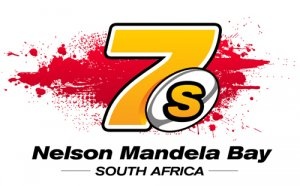 The Blitz Bokke are hitting the ground running at the Nelson Mandela Bay stadium this December as they compete against 15 other international Sevens teams in the local leg of this year’s HSBC Sevens World Series, so brush up on the ground rules around Sevens and how the laws differ from the 15-man game.
The Blitz Bokke are hitting the ground running at the Nelson Mandela Bay stadium this December as they compete against 15 other international Sevens teams in the local leg of this year’s HSBC Sevens World Series, so brush up on the ground rules around Sevens and how the laws differ from the 15-man game.
So, 7 ways that Sevens differ from Rugby Union:
1. One of the most obvious differences between the games is the amount of players required. In rugby union, the match day team is made up of 22 players and 15 start the game. The Sevens match day squad is made up of 12 players and only seven start the game.
2. In a Sevens match the coach has five substitutions available, but is only allowed to use three of these during the course of the game. In 15 man rugby, they have seven substitutes and can use all seven in the course of the game.
3. Sevens matches are split into two halves of seven minutes each, with a one-minute half time break. 15-man rugby games are most definitely not! (Just a note: Sevens tournament finals are usually extended to halves of ten minutes with a break of two minutes to allow for more spectacular action!)
4. Conversions in a Sevens match must be taken within 40 seconds of a try being scored whilst in the 15-man game it’s 60 seconds – and Seven’s kickers are only allowed to drop kick the conversion to ensure that the game never slows down.
5. The Sevens team that scores the try will always take the resulting kick-off to ensure that both teams have a fair amount of possession of the ball.
6.In Sevens, a scrum is only contested by three players. In a 15 man game a scrum is contested by eight players.
7. When a player is shown a yellow card in Sevens they have to leave the field for two minutes. This has a huge impact on the game, as a lot more space opens up on the field, than when a player is sin-binned in Rugby Union.
Now that you have your basics under your Sevens belt, here are seven proper Sevens facts to add to your pub-talk arsenal.
1. It was the Scots who invented the game: Invented by a butcher Ned Haig in 1883 at the Melrose Rugby Football club to be exact, it became so popular with fans that it has held every year thereafter.
2. The battle of the sexes: The first men’s international Sevens tournament took place in 1973 whilst the first women’s international Sevens tournament took place in 1997.
3. Sevens goes for Gold: From 2016, Sevens rugby at the Olympic Games will be seen as the pinnacle of the sport.
4. The Hong Kong jol: The Hong Kong Sevens is the most esteemed stop on the World Series. It was co-founded in 1976 by one of South Africa’s very own ou’s! (and an English expat living in the city) and it remains a highlight of the series. It was also the first rugby tournament to attract a major sponsorship.
5. It pulls in the big shots: Famous international rugby heroes who have represented their country in Sevens include Springboks Jean De Villiers and Gio Aplon, All Blacks Jonah Lomu and Zinzan Brooke; Aussies George Gregan & Joe Roff; Poms Lawrence Dallaglio and Matt Dawson; and Argentine Augustin Pichot.
6. It’s hectic: 16 core teams compete at every stop on the HSBC Sevens World Series. Most tournaments invite between four to six regional teams to contest the events. The Hong Kong Sevens is currently the biggest tournament with 24 teams taking the field over two days.
7. The little city that could! On 9 and 10 December Nelson Mandela Bay is going to rock with awesome on-field rugby action as well as incredible off field DJ and concert entertainment at the local Sevens series this year. Headline bands including Dr Victor and the Rasta Rebels and Goldfish plan to melt Nelson Mandela Bay stadium. Tickets start from an affordable R80. For more information contact Computicket.
Related Posts
« Millennium Stadium wins Rugby Expo award Win the Ultimate Road Trip to Rugby’s Biggest Party »


